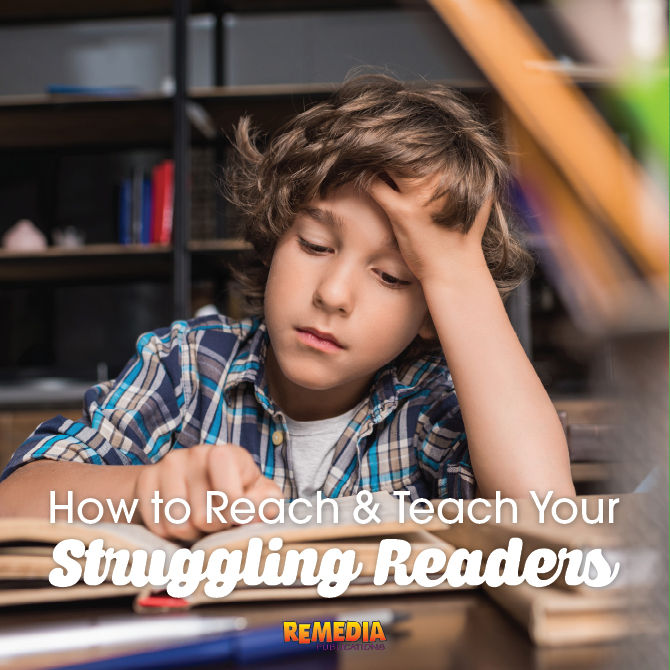Whether you have a non-reading teenager or a fourth-grader who is reading below grade level, it is key to grab your students’attention and hold it in order to motivate and teach them.
Start by determining your struggling readers’ interests. This is key! Knowing what will get each of your students’ attention will help you teach so many new things! Is it music, cars, animals, sports, mysteries, zombies, or ? Nail that down and incorporate these four activities to help build your struggling readers’ skills.
Reading Words
Use words relating to things your student is interested in. If your student loves music pick words like, “note,” “music,” “song,” “guitar,” “drums,” etc. Type-up each word on a flashcard. Or have your student write them on the cards. In this way, your student will be building his own sight word vocabulary.
Also, have your student cut out pictures from magazines or catalogs and help him identify and label them like visual flashcards. By making his own flashcards, you will likely be able to hold your students’ interest in learning new words.
Here at Remedia, we do offer sight word flash cards; find them here. When your student is ready, combine our pre-made flash cards with your student’s unique flash cards to help him form complete sentences.
Reading Sentences
Similarly, have your struggling reader dictate a few sentences about things he is interested in. For example, he might say, “I like to listen to rock music. My favorite band is the Foo Fighters.” Type the sentences or let him type the sentences on a computer. Print the sentences out for your student to read. Since these are your student’s sentences, his words, he may be more interested in reading them. Also because he already knows what the sentences say, he is seeing words he knows in written format.
Short Reading Passages
As your struggling readers gain reading skills, use short passages about high-interest topics to help build their confidence. As they find success in reading paragraphs or short storybooks, their desire to read more and more will grow!
Read-Along Audiobooks
This is another great chance to use topics your student is interested in. Use read-along audiobooks to grab your struggling readers’ attention. Your student will see and hear how the words on a page go together. By hearing unique inflections in the actor’s voice and amusing sound effects on the audiobook, your student will find joy and entertainment in reading and be more encouraged to continue reading.












